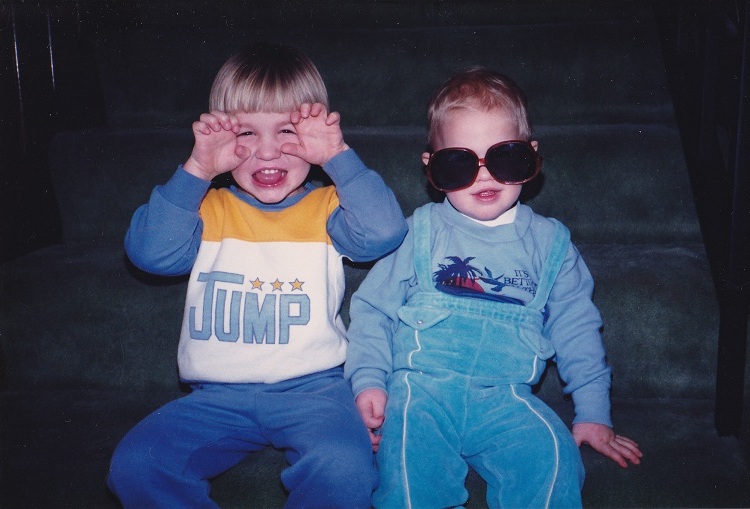TBM25: Awe and Wonder – Gifts of the Soul
There’s a long tradition in all major world religions of teaching people that life on Planet Earth is some sort of cosmic punishment. According to these theories — theories from such esteemed thinkers as Plato and the Buddha and Paul and assorted Gnostic teachers — the very fact that you’re living here on Planet Earth proves that you haven’t advanced very far in your spiritual development as a soul. These thinkers start with the assumption that life as a 3D human being totally sucks from beginning to end. So anything you can do to “escape” from the suffering proves that you’re smarter and faster and better than your “ignorant” and “unworthy” peers, who are too stupid to understand the need for escape.
Hey, don’t get mad at me. This is what these teachers actually taught!
See, now, I think all these teachers were completely wrong. I think these teachers never understood for a moment what it means to love. I think they saw the world from their own narrow, shrunken, unloving perspective. They failed to see the potential of all creatures on Planet Earth, the potential of all creatures to live lives of great courage and devotion and learning and teamwork. They failed to see the potential for love, which means they lived their own personal lives in a state of depression and blame and victimhood, and then they died without ever understanding why they were here and what they could have done with their human lives, but, you know, that’s their problem. You’re not responsible for their failure to see the “big picture.” You’re not responsible for their limited imagination or their limited faith in God or their limited courage. These teachers had more education and more opportunities than most people on Planet Earth have ever had, and they blew it. They chose not to learn about love. But you don’t have to follow in their footsteps. You can follow a different path — the Spiral Path of learning, love, and wonder.
Incarnating as a human being on Planet Earth, far from proving your inadequacy as a child of God, proves the very opposite. The fact that you’re here says you’re made of incredibly tough stuff — the kind of stuff that makes it possible for you to learn to juggle not only your soul’s needs but also your biological human needs. At the same time. With limited tools and limited resources. And a limited time frame. And a lot of days where you seem to spend more time UNlearning the errors of your past than anything else. And a lot of confusion and frustration. And more questions than you can answer during your life as a human being. And more ways to know your own love and courage than you ever thought possible.
It’s a friggin’ hard juggling act. But also an awe-inspiring juggling act. The people who get it figured out inspire awe and wonder in others. Not worship or blind obedience in others. (I repeat –the goal is not to try to induce worship or blind obedience in others.) It’s just a simple childlike awe and wonder towards others. The same childlike awe and wonder that we, as angels and children of God, feel towards our beloved divine parents, God the Mother and God the Father.
In other words, divine love has a large component of awe and wonder in it. You could also use the words “gratitude” and “humbleness” to describe the feelings of awe and wonder we express towards other souls in Creation, including the two souls who are God.
I often feel awe and wonder in the presence of other people when they’re choosing to bring a sense of balance into the world through their daily actions. These are the people who understand boundaries and appropriate limits, who understand when to say “yes” and when to say “no.” These are the people who know what they’re good at, and work hard to create something meaningful with the talents they have. They’re not threatened by other people’s talents. They know how to play when it’s time to play. They know how to cry when it’s time to cry. Most important, they think their highest spiritual calling is to treat other people with dignity, respect, compassion, politeness, and divine love at every opportunity each day.
Oh, and they’re not afraid to learn new things.
At the other end of the spectrum, I’m not ever inspired to a feeling of awe and wonder in the presence of status addicts. I take no inspiration from the choices of a person who is consciously seeking to climb the ladder of fame, power, or wealth. I feel no awe when I hear the contestants on American Idol trying to out-sing each other. I feel no wonder whatsoever when Donald Trump’s contestants come up with brilliant new business schemes. To be honest, the Olympics leave me cold. The cost of winning a gold medal is simply too high.
I’m all for the pursuit of excellence as long as it’s not confused (as it so often is) with the pursuit of status. I think it can be cogently argued that anyone who makes it into the Olympics has long since passed the threshold of excellence and crossed into the territory of full-blown status addiction. How else to explain the agony of defeat when the margin of loss is measured in mere hundredths of a second? There is nothing in this obsessive pursuit of perfection that I admire.
I do admire individuals who love a sport and actively participate so they can be in respectful, non-competitive relationship with others. I admire the people who use sports as an effective teaching modality. I admire the people who go outside to walk and bike and hike and camp and canoe (etc.) so they can be closer to their families and to God. I don’t have a problem with any of this. In fact, I think these activities are incredibly healthy and beneficial for both the soul and the biological body.
But don’t ask me to care which athlete has the fastest time or the best score. The soul doesn’t care about raw scores compared to other people’s scores. The soul only cares that each person raise his/her own bar as high as possible and keep working consistently to achieve the difficult goal of finding holistic balance between the soul’s 4D needs and the body’s 3D needs.
Please don’t assume from the previous sentence that I make a dualistic distinction between the soul’s 4D needs and the body’s 3D needs. These aren’t simple little boxes (despite what the Materialist philosophers would have you believe.) The three dimensional universe and the four dimensional universe are intertwined within each other — enfolded within the implicate order, as physicist David Bohm described it (or tried to describe it, since it’s so hard to conceptualize our complex reality by using our 3D pea-brains (no offense intended)).
Dimensions don’t have clear-cut dividing lines between them with perimeter signs that say, “Warning, you are now entering 4D Space! All shoes purchased with your credit card must be surrendered at the border!”
The thing is, when you die, you can’t take with you the actual pair of ruby slippers you loved during your human lifetime, but you can take with you the memory and the feeling and the love of your favourite ruby slippers, and strangely, in the mysterious way of this vast Creation we live in, you’ll one day find again a tiny bit of Creation that feels exactly the same way to you. And you’ll love your “4D shoes” just as much then as you love your 3D shoes today.
Such is the wonder of divine love. Spirals within spirals. Love within love. Ever entwined. Ever enfolded. And ever filled with wonder and awe.
Thank you, blessed Mother and Father, for the gift of your amazing love! We love you!
Addendum February 7, 2018: Recent research into positive emotions is showing how the emotional experience of awe may help lower the body’s levels of interleukin 6, a cytokine molecule which is a marker for inflammation in the body. Cytokines are important proteins in the immune system, but research has shown an association between high, sustained levels of cytokines and a number of diseases such as type-2 diabetes, major depression, and possibly Alzheimer’s disease. Of the positive emotions included in the study — amusement, awe, compassion, contentment, joy, love, and pride — it was awe that showed the most statistically significant association with lower levels of interleukin 6.









